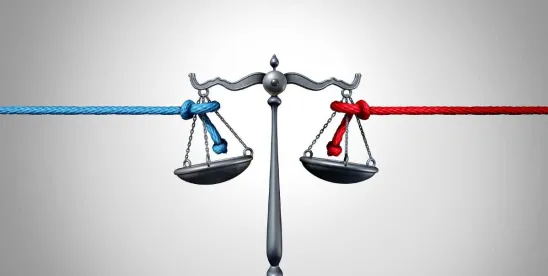The U.S. political landscape changed dramatically recently, in a way that will significantly impact labor law obligations for virtually all employers in the U.S. Republicans will control the White House and Congress come January, and Republican appointees will control the Supreme Court. By late January, Republican appointees will hold some of the key positions at the National Labor Relations Board. How will this change labor law? Some consequences are almost certain, while others are more speculative.
Near Certain Impact
Several changes will occur right away, as the new administration almost certainly will remove the current General Counsel of the NLRB, Jennifer Abruzzo, within the first week of taking control. The new administration will continue appointing conservative judges to the federal bench, and the Supreme Court almost certainly will remain a Republican majority for the foreseeable future.
The NLRB’s policy agenda is almost certain to shift. The new General Counsel will likely take a different approach to several key labor issues that the current NLRB has made a priority. For example, current General Counsel Abruzzo pursued aggressive enforcement actions against restrictive covenants, like non-compete and nonsolicitation agreements, following her May 2023 memo where she articulated her view that restrictive covenants like non-competes “generally violate federal labor law.” The new General Counsel will almost certainly halt enforcement of this position and several others when the new administration takes control.
Open Questions
While it is clear the new administration will change the labor landscape, questions remain on what these specific changes will be. Key open questions include:
- When will the NLRB lose its Democratic majority? While it is basically certain that the NLRB will lose its majority of Democrat members, when that change takes place is a major question. This will depend largely on whether the Senate reconfirms current Chair Lauren McFerran to continue after her term expires on December 16th. It is uncertain whether this will happen, but there is good reason to believe the Democratic-controlled Senate will reconfirm her. If that happens, the Democrat members will retain control of the Board into 2026, unless Trump takes the unusual step of seeking to remove Board members before their terms expire. The NLRA would permit him to do this if he can establish “cause.” In any case, the NLRB’s majority will change at some point in the relatively near future.
- How will the new NLRB change labor law? Whenever the change of control happens, how the new Board handles the rules articulated in decisions like Cemex and Stericycle will be of major interest. In Stericycle, the NLRB set a new employee-friendly standard for reviewing employee handbook policies. Under this standard, the Board determines whether the policy has a “reasonable tendency to chill employees from exercising their Section 7 rights.” The new Board may look to replace this subjective standard with a more employer-friendly standard, like the standard created in Boeing that governed employee handbook policies prior to Stericycle. In Boeing, the Board reviewed a policy by considering the extent the policy would potentially impact an employee’s NLRA rights, and the legitimate justifications for the policy. Likewise, the Board may make changes to decertification procedures, possibly making it easier for employees to undue union representation by preventing unions from interfering with the decertification process.
- What will the current NLRB do in the meantime? In the meantime, it appears the NLRB will push through new standards before the new administration takes over in January. As we recently covered, last Friday, the NLRB reversed 40 years of precedent and established a new standard that determines when employers will violate the NLRB by telling employees how a union might affect their relationship. Then on Wednesday, the Board reversed over 70 years of precedent when it issued a decision making “captive audience” meetings unlawful, which we covered here. Other topics the Board may tackle during the lame duck period include employee use of employer communication systems and Weingarten rights for non-union employees.
- How will the other branches of government affect federal labor law? In addition to questions involving the NLRB, the election will likely reshape the composition of the federal courts, leading to questions of whether the more conservative judicial bench will limit the NLRB’s authority and protections. In several recent decisions, lower federal courts have deemed certain aspects of the NLRB unconstitutional, and there is a good chance that other federal courts will agree that the Constitution limits the NLRB in key ways. The NLRB already operates under a very limited budget, and it is highly unlikely that the Republican-controlled Congress will allocate the NLRB greater resources. Lastly, a Republican controlled Congress might even work to change federal labor law through legislation, including potential further limits on the NLRB, expanded protections for employer speech, property rights and responses to employee disruptions and misconduct. The Republican-sponsored Teamwork for Employees and Managers (TEAM) Act, which has support from Marco Rubio and JD Vance, may receive significant consideration and, if enacted, it would increase employers’ flexibility to establish internal employee groups to facilitate communication and engagement.
Every employer should continue to monitor this area, whether or not they have a union, and we should know significantly more over the coming months.





 />i
/>i

